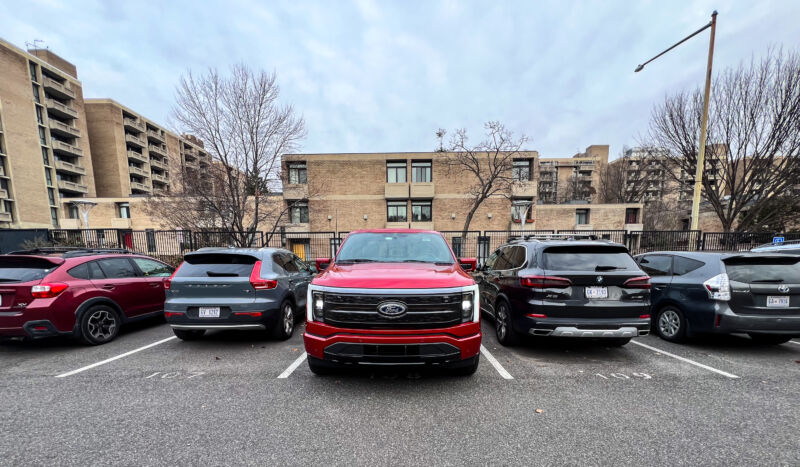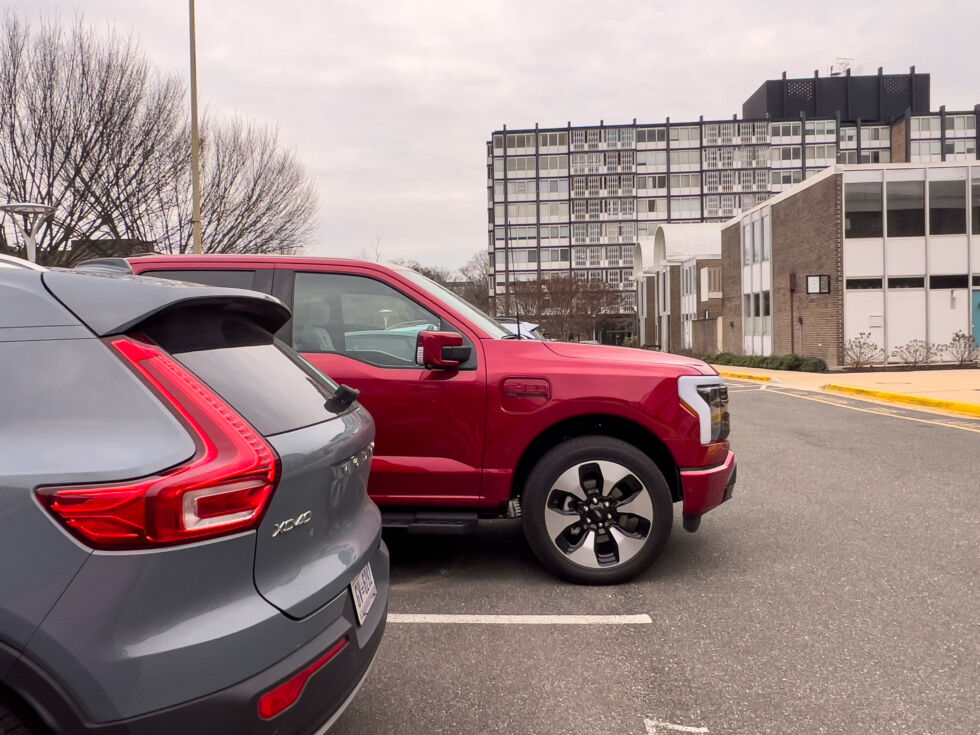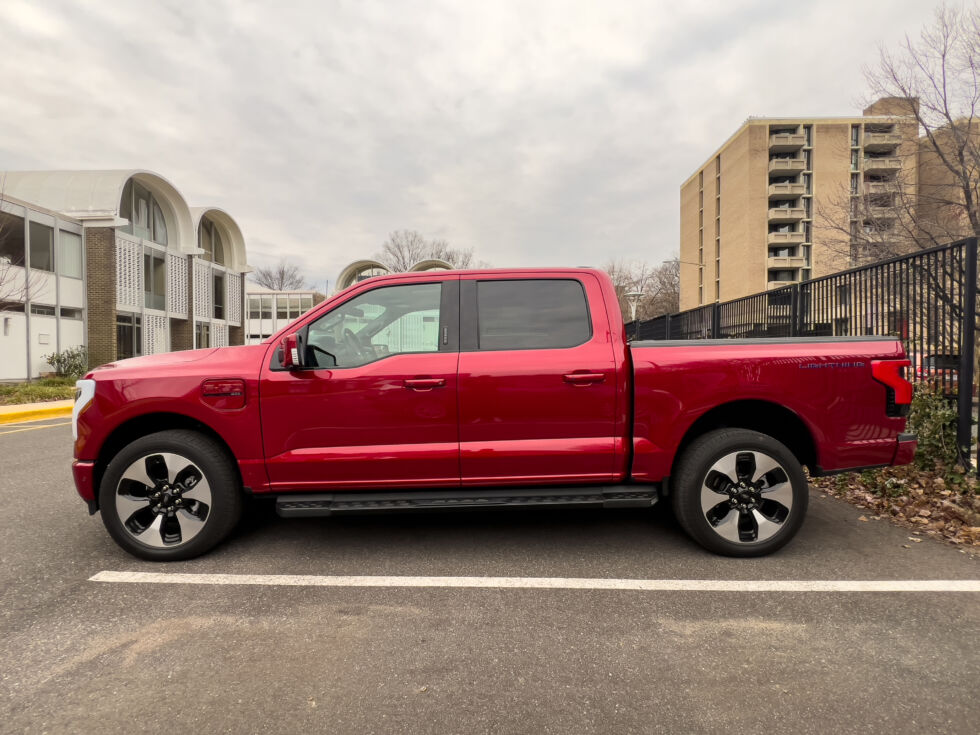stalking horse or white elephant? —
The big electric pickup truck is out of the suburbs and out of its element.

Jonathan Gitlin
I seem to be thinking a lot about Ford’s electric pickup truck, the F-150 Lightning. Earlier this week, we got the news of price cuts and price increases. Before that, there was a pending cut to planned production output. Taken as it is, it’s just the all-electric version of America’s favorite pickup—and arguably the best version unless you need to pull something on the end of a trailer hitch.
But the Lightning doesn’t exist in a vacuum. Depending on who you talk to, it’s a clever attempt to get Americans to go electric, an utterly familiar wrapper on a slab of new technology that, yes, still requires the owner to adjust their mindset a bit from the gasoline-powered way of thinking. To others, it’s a white elephant, one that costs too much and languishes on dealership forecourts, proof positive that electrification is a thing other countries might bother with, but forget that here at home, cowboy.
I’ve never found life to be quite that simple, and neither is the Lightning. Here in Washington, DC, the vehicle remains a rare sight—the only time I’ve seen one in the wild, it belonged to the DC government’s fleet of vehicles (its job was inspecting abandoned vehicles). Out west, it’s much more common to see electric F-150s on the road, and last year, Ford sold about 40,000 Lightnings, despite halting production for a fire and then again to retool part of the line.
Because I last drove one more than 18 months ago, it seemed prudent to book a week with an example from Ford’s press fleet to see how the pickup has matured since its release. The Monroney sticker did little to bust the idea that these things are expensive—$97,374 is a high price, although with the recent adjustment and an ongoing $7,500 incentive from Ford, a 2024 model would be just over $10,000 cheaper, according to Ford’s online configurator.

Jonathan Gitlin
I had bigger concerns than the sticker shock—quite literally. After all, you don’t have to buy a Platinum trim Lightning; a search on cars.com shows 823 Platinums for sale around the country out of a total of 7,531 new Lightnings. Many of the rest of those electric F-150s will be cheaper, but all of them will be the same size. And that size is just too darn big for my life in the city.
Size matters
This was immediately apparent as I backed into my parking space. The Lightning dwarfed my neighbors’ SUVs as it jutted out into the parking lot, almost entirely filling the space between the white lines. There’s no hiding a vehicle that’s 237 inches (6,020 mm) long and 80 inches (2,032 mm) wide before you include the mirrors.
Part of the reason it’s so big is that the four-door, five-seat pickup truck somehow became the replacement for a sedan in the minds of so many American men. On four wheels, with at least eight inches of ground clearance, you could drive it on an overlanding adventure, but in practice, you’ll just obstruct the views of everyone else on the road. The only way to see around a big truck is in another big truck, and before you know it, the country is buying several million full-size pickup trucks every year.

Enlarge / I’ll be honest: I used neither bed nor frunk during the entire week. Groceries and cargo went on the back seat or the floor behind the driver’s seat. Which made most of the F-150 Lightning’s bulk superfluous to my needs.
Jonathan Gitlin
For people living in newer homes in suburbs or exurbs who commute to jobs in office parks surrounded by vast expanses of surface parking, the size thing might not even be that noticeable. Garages are built big enough to house brodozers now, and houses out in those parts are set back from their neighbors. Climb up into the driver’s seat of a Lightning in the middle of a dense city, though, and it’s on stark display.
Although I adapted to the Lightning’s size, it was really only once I ventured into the suburbs of Northern Virginia that I started to feel truly comfortable behind the wheel. The multilane roads in places like Fairfax and Tysons Corner were much more the Lightning’s element. No road diets here, nor people on bicycles to be ever-vigilant for. Driving in the city, I was always aware of its size, although the view from the high-up driving position was mostly excellent, and the one-pedal driving mode made it simple to stick to the 20 mph speed limits.